If you are unfamiliar with HVAC equipment, the list of names and parts connected with it may confuse and intimidate you. If you want to know the difference between an air handler and an air conditioner, read on. We researched this topic, and here is what we learned:
An air conditioner unit conditions the air from the inside to be warm or cold inside your home. Meanwhile, air handlers help move that air around a space and do not impact temperature.
Is that all you need to know? Of course not! We share more detailed information in this post to help clear up your confusion. We also answer other frequently asked questions regarding this topic. If you want to learn more, keep reading.
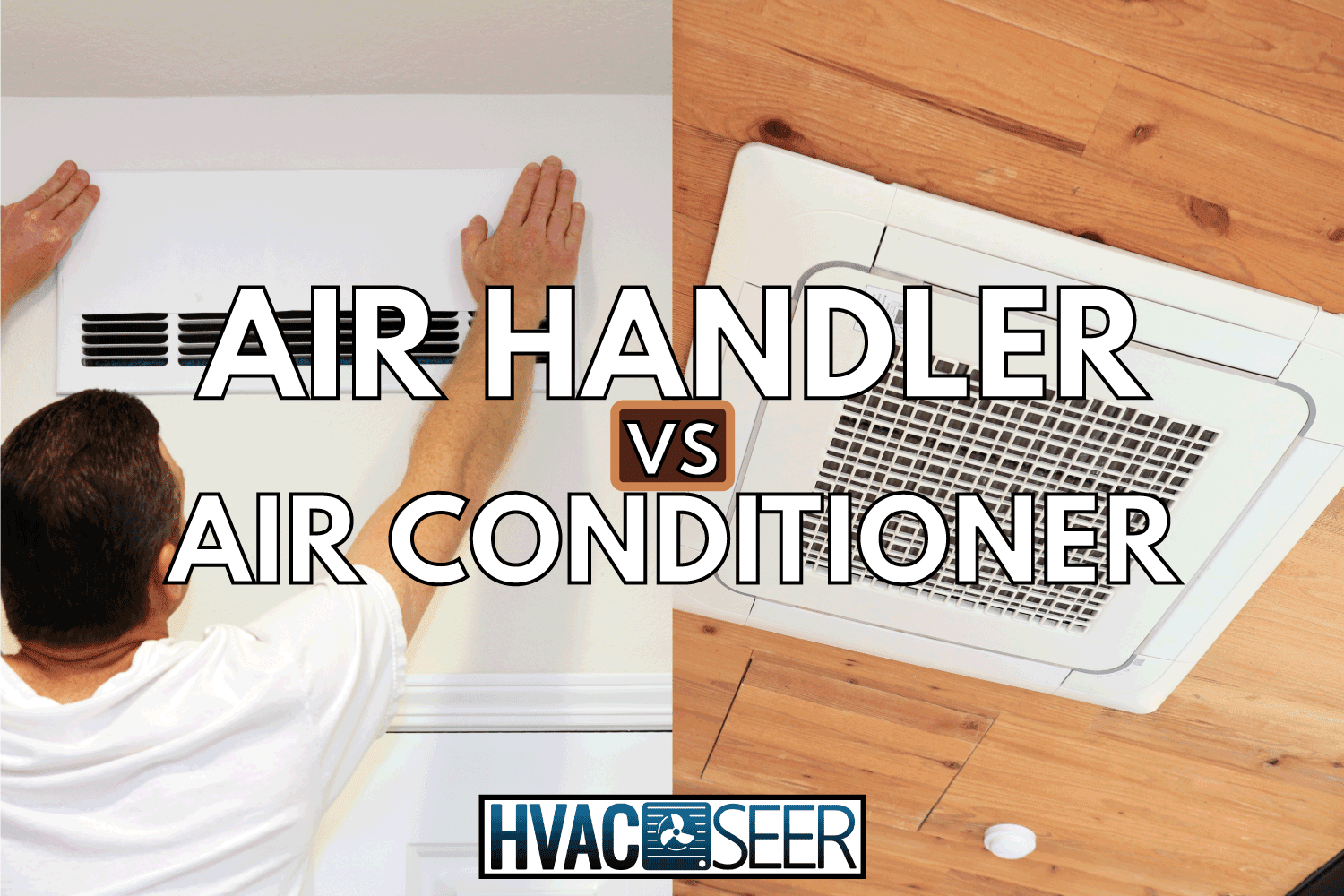
The Difference Between Air Handler and Air Conditioner
The distinction between an air conditioner and an air handler is not hard to understand. They are HVAC systems that can function together to make a room comfortable.
They mainly differ in their functions and components, even though they both deal with air. In this post, we will present their unique characteristics to let you see their uses and help you decide if you need them in your home. Let's start with the air conditioner.
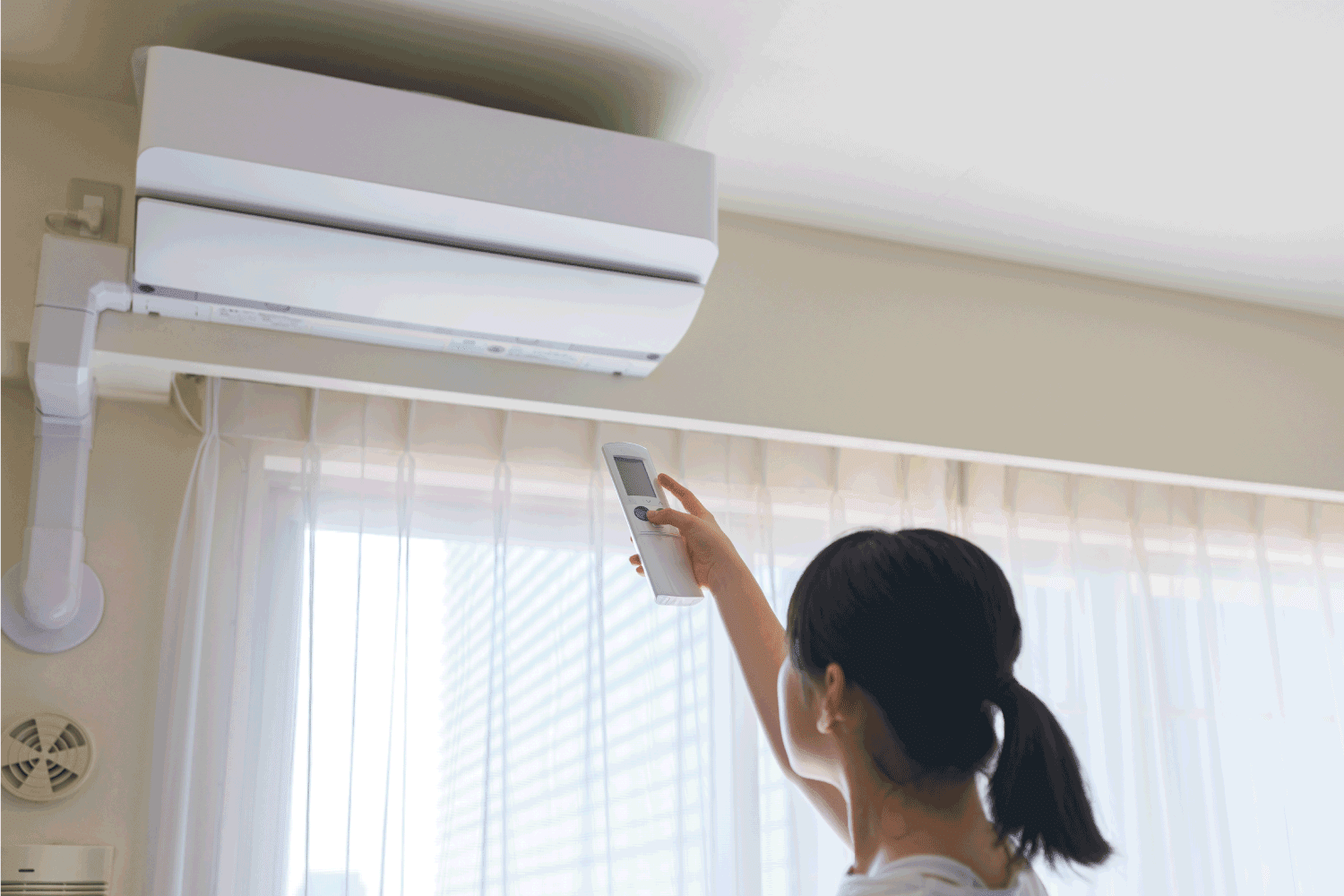
Air Conditioner
An air conditioner, or "AC," is a cooling or heating system used to manipulate and maintain a specific temperature inside a space. An air conditioner unit is one of the most common ways to cool down.
The size of the area being cooled is not an issue since there are different types of ACs that you can install to cater to this: central air, a window-unit AC, and a ductless AC. Huge buildings use rooftop systems.
That is why you do not see air conditioning units on the walls of a mall or hospital. Other functions of AC include the following:
- It is used to dehumidify the air in all seasons. This is important to control the moisture that can damage your property by increasing the buildup of mildews, molds, etc.
- It helps ventilate air within your home.
- It helps in filtering dust.
Components Of Air Conditioner
The following components work in harmony to keep your air conditioner running:
- Evaporator coil
- Compressor
- Condenser coil
- Expansion valve
- Air Filter
- Refrigerant
- Fan
- Thermostat
Advantages Of Air Conditioner
An air conditioner does not only prevent discomfort from heat or cold, but it also comes with more benefits, which are listed here:
- It can help reduce asthma attacks since AC can help filter dust and allergens in the air. As a result, indoor air quality can lessen the chances of triggering your asthma.
- Helps provide security for your home. You do not have to open your windows to let the cool breeze in and expose the inside of your home and invite bugs and insects to enter.
- It helps users relax after a hard day's work. Humans sleep better in cooler temperatures, as our body naturally drops at night to signal our body that it is time to rest.
- It helps the electronics to avoid overheating. The room's cold temperature can help reduce the heat of an electronics. Overheating can result in irreversible damage to the battery and its performance.
- Reduces the risk of dehydration and stroke. Hot temperatures can cause sweating. When we sit, we lose water in our body, which is vital in preventing heat-related medical conditions like stroke.

Disadvantages Of Air Conditioning
Here are the disadvantages of using an air conditioner:
- It can cause dry skin and eyes since AC removes the moisture in your room, including the moisture in your body. It is can also cause natural oils to evaporate quicker than they should.
- Produces ambient noise when running.
- It can transmit airborne diseases, fungi, and allergens since it moves the air around, making it easier for them to travel in the space there.
- It contributes greatly to your electrical bill since it requires a lot of energy to work.
- It is harmful to the environment since it emits carbon dioxide into the atmosphere, contributing to global warming.
Are you a Sharp AC user? Find out how to clean your AC here: How To Clean A Sharp Air Conditioner
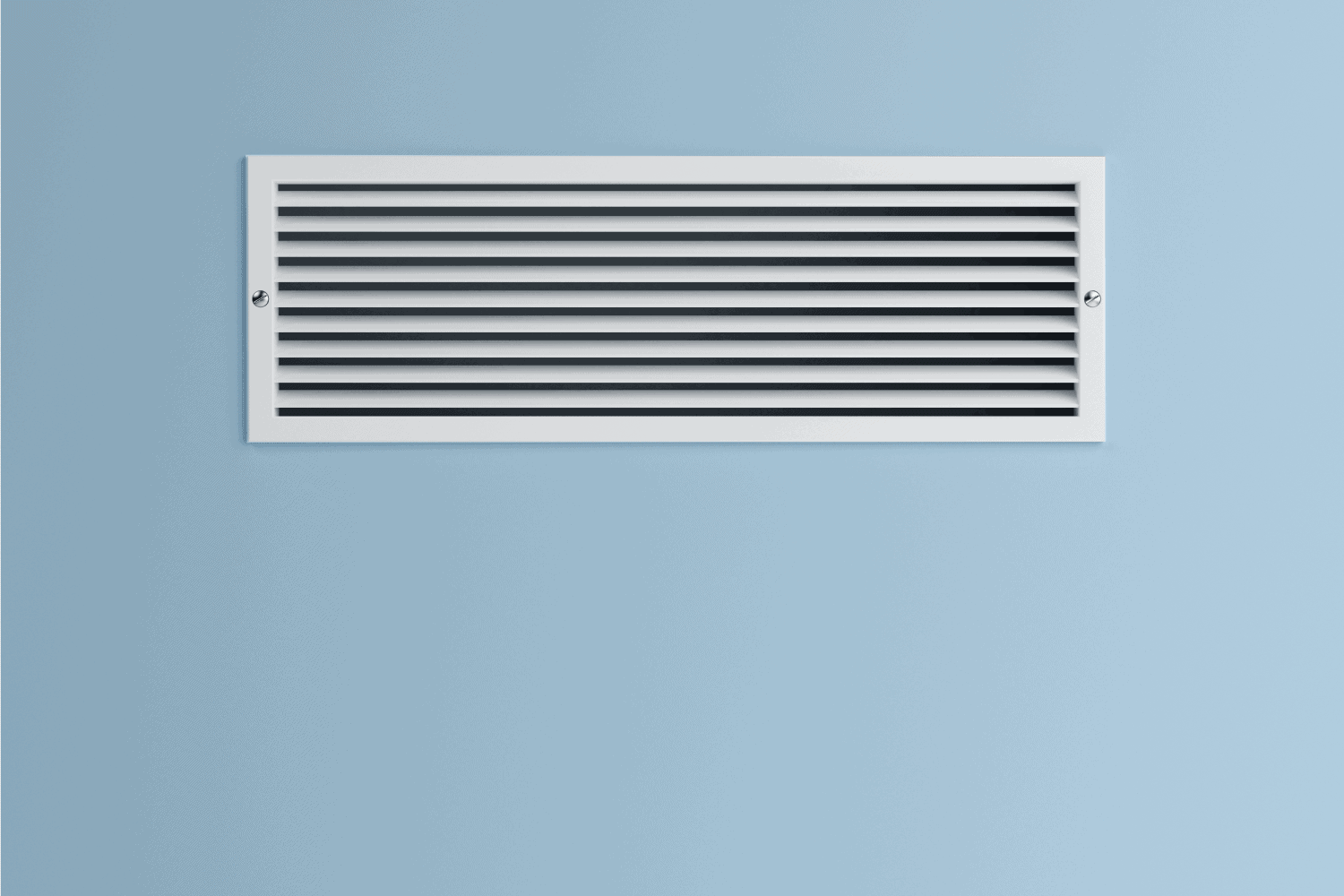
Air Handler
An air handler, also called a "fan coil unit," is an HVAC system that distributes the air throughout the vents and each room of your home. It supports your heat pump or air conditioner in doing their jobs better as they are usually installed together in a system.
In addition, an air handler is also commonly used in the central air conditioning of medium to large buildings and can be found on the roof, on the floor, or in the basement. There are three main types of air handlers—single-speed, five-speed, and variable-speed.
Components Of Air Handler
As with an the air conditioner, the parts of the air handling unit work side by side to ensure it is running well. These are the parts:
- Housing
- Fan (Blade and motor)
- Heating/Cooling Coil
- Filters
- Panel
- High-Efficiency Particulate Air (HEPA)
- Humidifier
- Mixing Box
Advantages of Air Handler
Here are the benefits you can get with air handling units:
- They can be installed together in one location.
- Delivers the treated air throughout the spaces of a setting to spread the warmth or coolness of temperature that the occupants need.
Disadvantages of Air Handler
The downside of an air handling unit is when it malfunctions. This can affect the air conditioner or heat pump system that it supports.
Want to learn how to clean air handler coils? Read about it here: How To Clean Air Handler Coils.
Where Are Air Handlers And Air Conditioners Located?
Air handlers are commonly placed in the attic, basement, or closet. Meanwhile, air conditioning units are installed in the area where you want to cool down or warm up the temperature. This is usually in the spot where a lot of people gather together, like the living room or dining room.
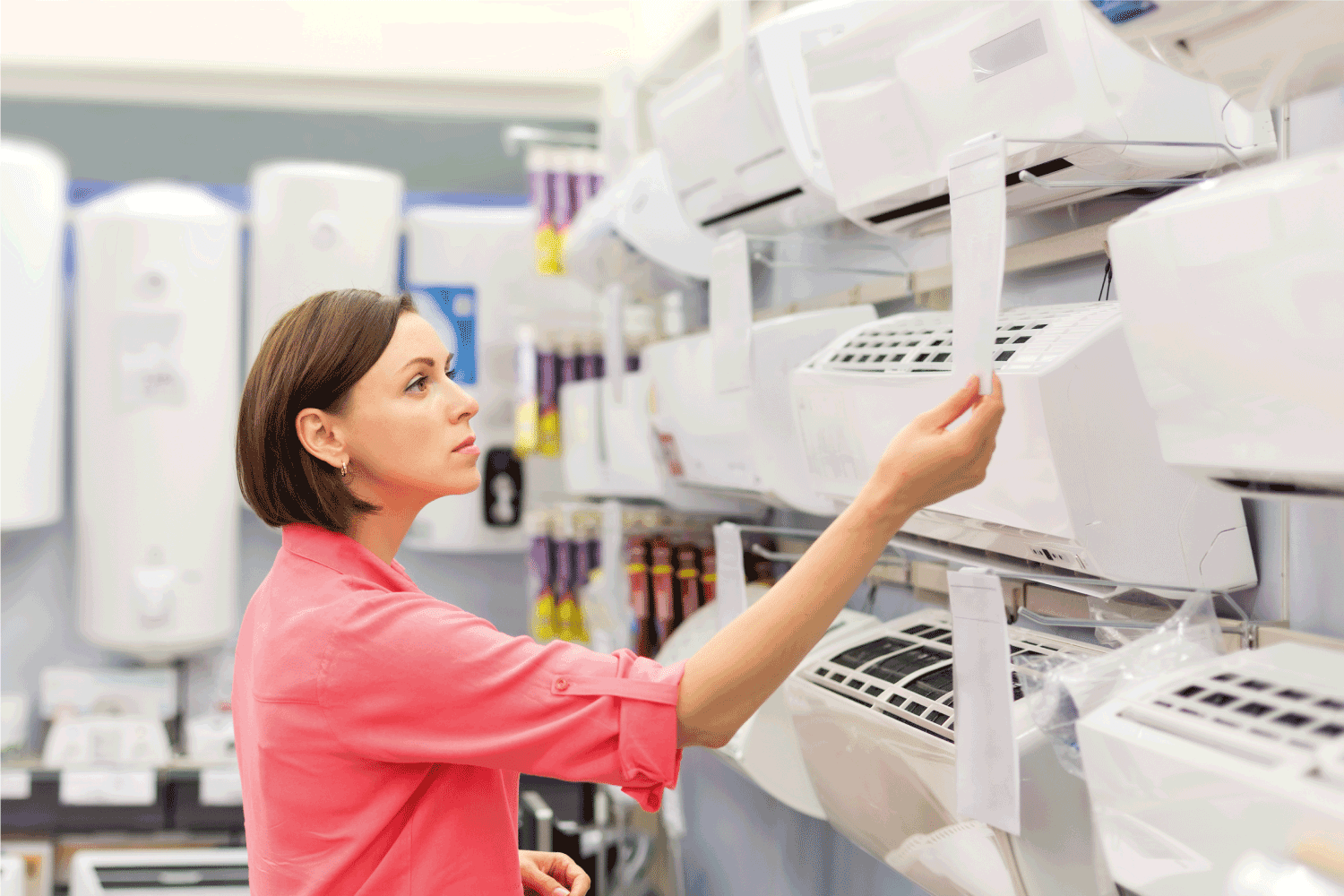
Which Is Cheaper: Air Conditioner Or Air Handler?
Here are the prices related to the air conditioner and air handler, which might be helpful if you buy a new unit, replace it, or install it. The information may vary depending on the details provided by the sources.
Air Conditioner
Various factors may affect an air conditioner's price, such as the brand, size, type, etc. But here are the common types and their corresponding estimated prices.
- Central air conditioner: $1,200 - $4,500
- Window AC unit: $150 - $750
- Ductless mini split: $1,000 - $5,500
- Geothermal: $3,000 - $6,000
- Dual fuel: $2,800 - $5,500
You can install a window-unit AC by yourself. However, the other types of AC units should be professionally installed. With that, you might need to add these to your budget:
- Central air conditioner: $1, 200 - $2, 000
- Ductless mini-split: $500 - $2,000
- Geothermal: $10, 000 - $30,000
- Dual fuel: $1, 300 - $2, 500
If you do not need a new AC and only need to hire an electrician for a repair, here are the estimated repair costs for the most common air conditioner issues:
- Leak: $200 - $1,300
- Drainage problem: $100 - $150
- Compressor replacement: $600 - $1,200
- Frozen condenser coils: $250 - $1,000
- Fan/ Air blower : $450, $650
- Clogged air filter: $75 - $180
- Electrical circuit: $100 - $150
- Thermostat: $100 - $250
Air Handler
Air handlers cost around $500 - $3,500. This may vary depending on how many tons, brand, type, etcetera. Take a look at these estimated prices according to type:
- Hydraulic Air Handler (Usually 4 /5 tons or more): $600 - $3, 500
- Variable-Speed Air Handler: $1,000 - $3, 500
- Commercial/ Industrial HVAC Handlers: $1,500 - $3,500
- Residential models - $500 - $2, 200
The installation cost for air handlers, including space preparation, attaching connections, testing, and cleaning up, ranges from $200 to $2,100.
If you are going to replace an existing unit, you should prepare to pay $2,200 - $3,800. This includes the price of a new air handler, installation fee, and removal/disposal of the old unit (usually $300 - $500).
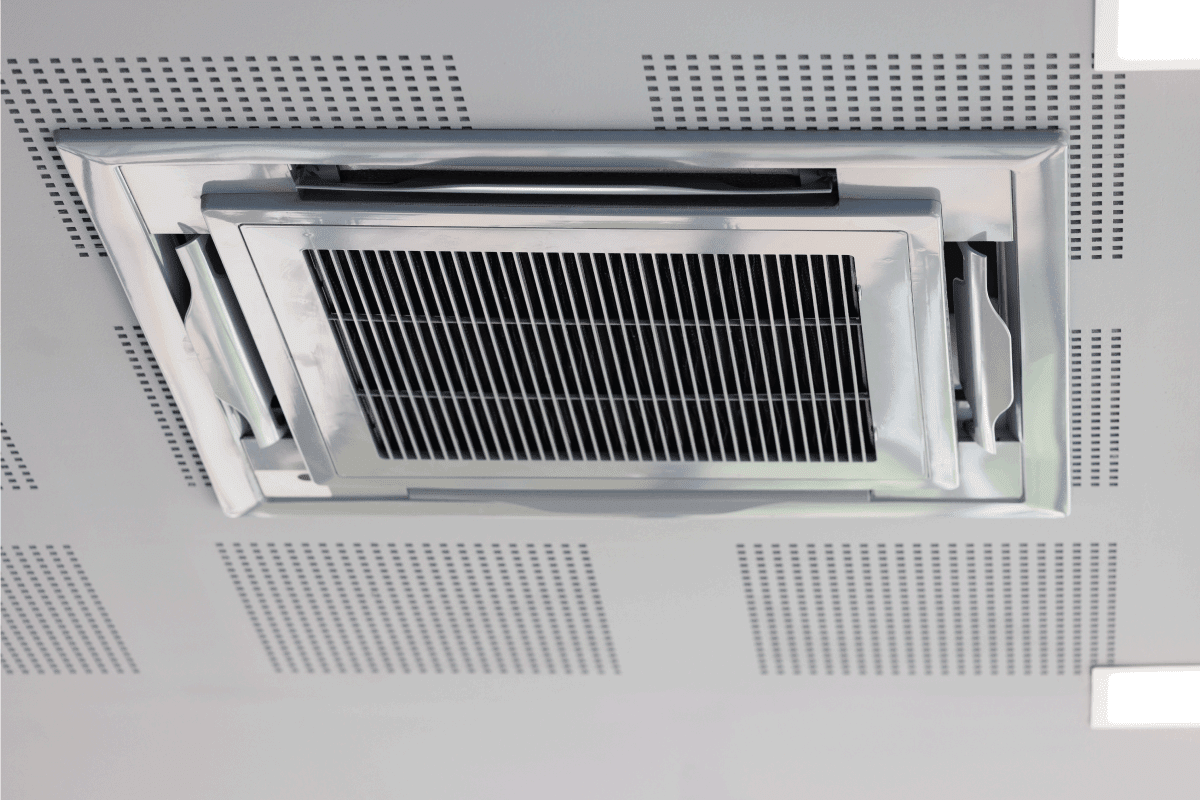
To Wrap Up
Air conditioners and handlers differ in function but help one another do their job. Air conditioners control and manipulate the temperature of an area while air handlers help circulate or distribute that air throughout the space.
According to our research, new air conditioner units are cheaper (the cheapest is $150, an AC window unit) than a brand new air handler (the most inexpensive cost is around $500, which is under the residential models).
If you plan to have them installed, you should consider the brand, size, area you want to warm up or cool down, type, and other factors such as installation fees in your area. Now that you know the difference between an air handler and an air conditioner, you can cross them off the list of HVAC terms that you find confusing.
